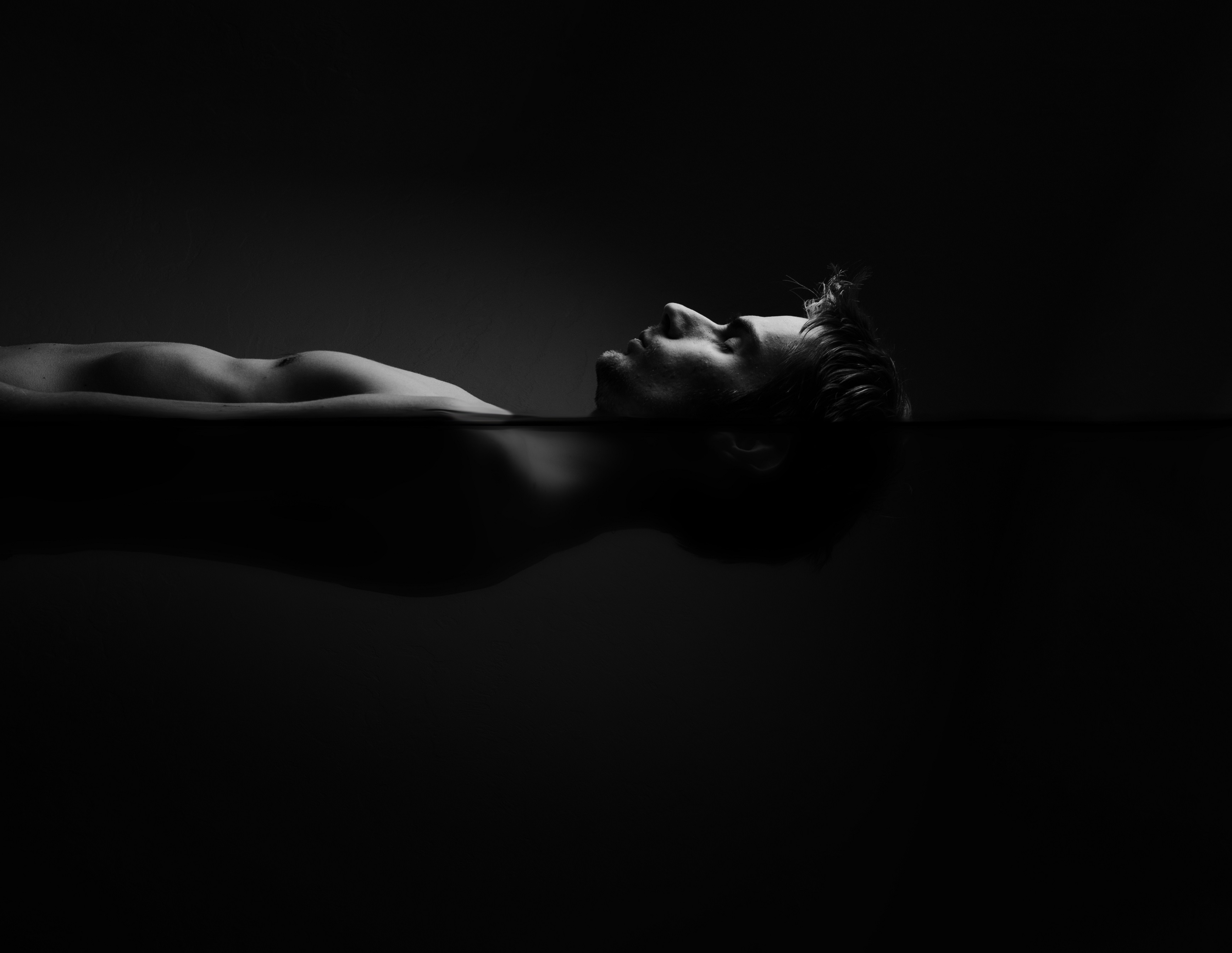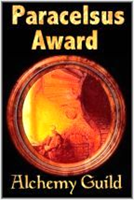
I was initially uncertain about what epiphenomena would unfold within the isolation tank during my hour-long therapeutic session. Would I experience hypnagogic states, hallucinations, and altered states of consciousness? Would I spiral deeper and deeper into a meditative trance, to a dark void from whence it would be impossible to extricate myself when relaxation music from the underwater sound system finally came back on? Would the confined space awaken a closeted claustrophobic self I never knew existed, one that would spur a profound panic attack and consequently a premature termination of the session? It was impossible to say.
The only certainty was that I wanted to float–needed to float. The perpetual undertaking to digest truckloads of non-fiction books within contracted periods of time–the immense effort expended in reading, comprehending, and assimilating this information into my existing knowledge system and consolidating it into long-term memory storage–was beginning to wreak havoc with my aminergic system, and in a deliberate insurrection against my stubborn and stoic core, I found myself confessing to self-inflicted cerebral saturation. Was there anything that could be done to correct this harmful imbalance?
The best defence against such psychological wear and tear is any mental activity aimed at stilling the mind and promoting alpha wave brain activity–that is, that relaxed state of consciousness long revered by clinicians, alternative medicine, traditional shamans, and other healers as the mental state conducive to healing. Meditation, hypnosis, and some fringe phenomena like hypnagogia are all prime examples of alpha-bound consciousness. When we lapse into these states neural oscillations comprised chiefly of the alpha wave variety stimulate the release of feel-good molecules called endorphins which inflate wellbeing, dispel negative sentiments like stress, anxiety, and depression, and severely dampen the subjective perception of physical pain. Biding one’s time herein also results in some pretty desirable cognitive gains; one’s attentional selectivity, memory consolidation, creativity, and problem-solving ability all augment for the better. Perhaps the most impressive aspect of these reputable phenomena is the quantifiable alterations they can incite, namely a propensity to improve circulation and blood pressure. The quantifiable aspects have inspired a degree of empirical validity that has kept the contemporary scientific community contented over the years, at least contented enough as to not to launch a hostile and condemnatory agenda against the holistic counterculture.
Floatation therapy inspires that same abovementioned state, with the obvious and only incongruity related to the configuration of the immediate environment. It involves immersion in a lightproof and soundproof tank that has been filled with a foot of salt-rich water heated to body temperature. The water is treated with roughly three hundred kilograms (900lbs) of Epsom salts, a powerful inorganic cocktail of magnesium, sulphur, and oxygen. Under such conditions the human body acquires natural buoyancy, eradicating irrational fears that the possibility of drowning might inspire. (You’d struggle to drown in a foot of water anyway.) Voluntary acts of plunging and staying on the floor of the tank are rendered futile–your attempt to sink would be as fruitless as an astronaut’s attempt to fall onto a crater of the moon. In any case there are numerous therapeutic benefits to soaking oneself in and allowing magnesium sulphate to be absorbed through the pores of the skin. It assumes a catalytic role in the regulation of three hundred somatic enzymes, protein synthesis, the flushing of harmful toxins from the body, and the alleviation of psychological stress. All good stuff!
Readily prompted by mental images of floatation therapy as a natural wonder-drug, I scoured the internet for accredited venues and found one in close proximity to my own residence in the northern suburbs of Melbourne. After some deliberation, I opted for a morning float. Getting in early would mean that the recommended abstinence from caffeine would end up being but an evanescent dent in the dietary latitudes of the day (I’m addicted to caffeine!). It also meant I could enjoy any psychological and physical benefits for the entire duration of the day without interruptions. In hindsight it was a mighty good choice! To increase my prospects of being a successful maiden floater, I ensured that all antagonists able to interfere and detract from the prospective mystery and wonder of the experience were actively mitigated. There was no way I was suffering any agonizing stings wrought from the confluence of saltwater solution and open sores because I had purposively avoided the razor for two days prior to the float. In addition I verbalized a set of positive affirmations about holding my head straight and slightly bent forward, something I’d long anticipated would help in keeping saltwater solution from the vicinity of my eyes. To end with I injested only a light meal, successfully avoiding both the metabolic demands of digestion and hunger cravings bound to distract from the imperative focus of entering that perfect ruminative state. Looking back I can say that embracing the instructional literature on floatation without questioning its legitimacy was one of the best decisions I made.
On the day, the receptionist at the health centre made it a point to impart necessary information to another floater and myself. She gave a comprehensive outline of general proceedings; she pinpointed various safety devices along the inner rim of the right-hand side of the floatation tank that can be pressed in the case of genuine discomfort or alarm; and she gave a short spiel on the pivotal and fundamental role of personal hygiene. Floaters, she had stipulated, are strongly encouraged to shower before and after entering the tank using the pre-supplied amenities–shampoo, conditioner, and body wash–in the respective dispensers connected to the wall. She then asserted that the disposable earplugs provided free of change should be inserted into the ears before showering as to thwart the likelihood of moisture and salt solution getting in–choosing to abstain from this activity meant having the added burden of rinsing each of your ears thoroughly for half a minute or so at the conclusion of your float. Once you were ready to go you could flick the light switch off, slip into the floatation tank, and slide to the hatch shut to evoke the feeling of complete isolation from external reality. She further instructed that ten minutes of relaxation music would be played through the underwater sound system at the inaugural and terminal stages of the session for the purpose of illuminating time constraints, with the pivotal middle portion marked by signature graveyard silence. Finally she withdrew from our respective rooms, allowing the unique floatation experience to unfold for both of us in all its awe-inspiring wonder.
I scrutinized the floatation tank for a while, unsure if I should trust without reservations. Suddenly the sound advice offered by the female representative back at the reception area reverberated in the recesses of mind: “Just go in without any expectations, forget your preconceptions, and allow the entire experience to unfold without any cognitive or emotional input.” Easier said than done really; no matter how much we resist, repress, and reject the subjective contents of thought, they’ll always find ways of rushing back into our perceptual fields like menacing clown-headed jack-in-the-boxes. Often an internal promise to keep certain thoughts at bay will inspire their memory–it’s all too absurd really! Even more absurd was my unconscious resistance to jumping the fence: should I trust in the process of “letting go” and surrender to the grand numinosity of the boundless experience, or should I resist fragmentation of my ego and remain earthbound? Do I go all out and sail the vast, desolate oceans wrought by divergent conditions like doldrums and rogue waves, or do I play safe and steer a zigzag course without ever losing sight of the mountainous mainland? Choices, choices, and more choices I told myself. We grapple with them on a day-to-day basis. In the end I decided to switch Paul–the level-headed, emotional, and philanthropic Greek-Australian man interested in mind-matter interaction, psychology, and neuroscience–for an ego-dystonic and impersonal state better able to cogitate upon nonbeing in the midst of a chaotic social synapse with its sonic nest of distracting stimuli.
A whole new world opened up after slipping inside, one with its own natural laws and properties. I manoeuvred left and right, forwards and backwards, allowing the nutrient-rich waters to wash over me as if I were a lone barrier reef out in the supernal Coral Sea. I spread my arms and legs out and enjoyed the degrees of transcendent mental freedom offered by the unlikely convergence of imaginative play and physical buoyancy. Little by little the act of bringing forth pleasant images into the darkness from within myself usurped the reigns of self-awareness and demanded liberation from the mundane cycle of everyday social life; from the trepidations which arose from intense pondering of the future; from intellectual and physical tasks waiting to be done; and from acute stresses connected to mental saturation and a genuine inability to maintain a certain standard and quantity of written work. Worries melted away like icebergs drifting into temperate waters from the Antarctic ice sheet, leaving only the aural footprints of heavy breathing. Before long my unquiet mind found itself starved of attention, with the only discernible sounds coming from the bifurcated cycle of inhalations and exhalations afforded by respiration, and the only tactile sensations coming from subtle ripples of viscous water breaking against any surface area of dry skin. The internal machinery was gradually slowing down to a near halt. Soon all stimuli competing for mental attention–everything from the slurping salt waters inside and the ambiguous murmurs outside the womb-tomb along with the subliminal awareness of embodiment, time, and space–dissipated from consciousness. This allowed “I” to merge as an uroboric experience divisible from the qualitative aspects of social personality, something distinct but inseparable from the entire person which selects attentional targets purposively.
I would be remiss if I didn’t mention the sudden feeling of intimate familiarity with the tank’s morphology which possessed me then, the spontaneous perception of an underlying symbolism. Making such a profound connection birthed a deep sense of contentment and delight within me. Appearances would suggest the tank was nothing but an artificial apparatus brimming with salt-rich water, however those who aspire to higher cosmic processes of representation would aptly disagree with this one-dimensional assessment. They would see beyond the inert metal patina to the symbolic core, the chamber, the heart, the archetypal vessel. Among other things the floatation tank might be a nurturing womb able to confer the vital force called life, a scallop shell fortifying delicate living flesh from the predatory eye of a would-be invader, and a hidden sanctuary in which the true self unites in holy matrimony with some greater transcendental reality. Remaining true to this natural and rudimentary family of interrelated associations, floating within the tank could also be thought of as an unprecedented return to the origin, a momentary glimpse of the primordial seas from whence all life had sprung forth millions of years ago, and the ritualistic cosmopolitan marvel of baptism all over again. In many ways, floatation is a kind of reunion with the uroboric state preceding birth and by extension with the creatrix, the feminine aspect of the divine.
I can assure you that the experience itself was bittersweet. The act of removing oneself from the phenomenal world and contracting into the space of uroboric awareness lasted barely a microsecond, if that. It was ephemeral in the truest sense of the word. We’re athwart the bliss and then we are without; we walk through the iron gates guarding the kingdom of heaven only to find ourselves plummeting like purpled fruits back down to the ground of spiritual malnourishment, far from that elusive transcendental state. “All of mortal life is a powerful lesson in the art of falling,” I reminded myself, “and those who resist end up accumulating diabolical tribulations above the average.” Bittersweet was probably a most accurate description of newborn babies’ inaugural experience of life as they leave the warmth, snugness, and security of the placenta for far less empathic environments. There’s so much disappointment and dysphoria to becoming another small knot in the social synapse, no doubt. From this perspective, spending thousands of years floating in a state of suspended animation within some cryogenic facility in a remote corner of the country whilst scientists figured out a way of transplanting your preserved nervous system tissue into an artificial body and reanimating you wasn’t such a daunting and negative prospect after all. With a bit of luck you’d emerge from the eternal tunnel of timelessness and lightlessness into a distant epoch to see light and measure time once more, hopefully with the indispensable bits and pieces comprising your unique footprint in the cosmos intact. But in all seriousness though, what is time? Time is definitely a human construct bound to disappear like a mirage when you’re physically cocooned and mentally insulated from the rest of the world. It only appears and functions when our self-awareness is embodied.
A snippet of relaxation music resonated through the underwater sound system, snapping me from my retracted, bodiless bliss. The spell of timelessness in inner space was broken! I passed my hands over the smooth contours of my own body, trying to recreate a mental image of what I might look like to another observer with information coming from the sense of touch alone. Sadly, the preserved record of autobiographical memory encrypted by my hippocampus and other memory systems of my brain kept sabotaging this innovative endeavour at every opportunity. In the end carnal self-exploration proved to be a much more worthwhile pursuit for the five minutes remaining. Beginning at the jutting protrusions that were my nose and ears I used my left hand to lightly trace an imaginary amble along the depression that was my neck and the twin moulds that were my pectorals, down to the more sensual and forested terrain yonder. Amidst the preternatural silence vacillations of the hand caused a normally limp appendage to inflate like a balloon, jolting me from the languor. Little did I know that the intimacy with my own anatomy, an innocent poke and prod here and there, had just compelled me into a semi-conscious confrontation with the same Adamic shame which had overwhelmed the first man and woman in God’s eternal paradise. Unlike my mythological forebears, awareness of the fact and the subsequent sentiments it stirred up didn’t motivate me to cover myself; on the contrary it inspired ebullience and awe. What retarded logic would make such a fundamental error as to mistake the sacred nature of self-discovery with guilt and indignity?
As if to prove a point I yanked the lip open and stood up, allowing the watery residue to sluice down my body. My eyes darted about, inspecting the avatar reflected in the full-length mirror beside the shower. A raw intangible vitality roared through me like a powerful orgasm, coagulating on the physical level as a supernal iridescence of the skin. I couldn’t help but feel jovial, inquisitive, and genuinely grateful for being alive. We must remember to honour and celebrate this sentiment in our mental and physical doings and invoke it often for the purpose of reconnecting with our cosmic source–it is our sacred duty! My gratified acquaintance in the mirror nodded his approval. Would Aphrodite have felt this spirited and rejuvenated after disembarking from the famed scallop shell that delivered her from the abyssal Pleroma to the shores of Cyprus in the space of a nanosecond? There’s plenty of reason to believe so.
I showered, dressed, and stepped outside into the reception area; I was once again ready to face the world…









